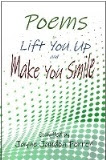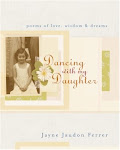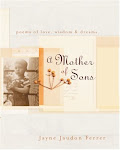 hters or sons, go find "Bright Star," Jane Campion's gorgeous new film about Romantic poet John Keats and the love of his life, Fanny Brawne. Unfortunately, it's only playing in select theatres, so you may have to hunt for it (go to http://www.brightstar-movie.com/ and enter your zip code to find the theatre closest to you), but it's worth whatever distance you have to drive. If you're an action movie buff, I should warn you that you may have trouble staying awake; the pace of the film makes a tortoise look manic. But if you love period pieces, lush European-style cinematography, character studies, romance, family drama, or poetry, this is two hours of bliss.
hters or sons, go find "Bright Star," Jane Campion's gorgeous new film about Romantic poet John Keats and the love of his life, Fanny Brawne. Unfortunately, it's only playing in select theatres, so you may have to hunt for it (go to http://www.brightstar-movie.com/ and enter your zip code to find the theatre closest to you), but it's worth whatever distance you have to drive. If you're an action movie buff, I should warn you that you may have trouble staying awake; the pace of the film makes a tortoise look manic. But if you love period pieces, lush European-style cinematography, character studies, romance, family drama, or poetry, this is two hours of bliss.There are so many positive aspects to "Bright Star," it's hard to know where to start. The fact that John and Fanny's relationship is based completely on affection and admiration, with virtually no physical contact--an all but foreign concept in this day and age--is certainly key, but I'll come back to that. Equally as satisfying is Campion's portrayal of Fanny and her mother as strong, capable women--a welcome change from the simpering females typically associated with the early nineteenth century. Fanny's father was long dead by the time John Keats became her neighbor, so one assumes the portrayal of the Brawne women is accurate since, without father, older brother, or other male relative at hand, they were forced to be self-sufficie
 nt of necessity. Perhaps because of that need to pull together, the Brawne family had a genuine affection for one another; that affection is evident throughout the film. Though Fanny admits in one scene that her little sister can be annoying, the closeness of the family members is obvious, and they continually, and willingly, look out for one another.
nt of necessity. Perhaps because of that need to pull together, the Brawne family had a genuine affection for one another; that affection is evident throughout the film. Though Fanny admits in one scene that her little sister can be annoying, the closeness of the family members is obvious, and they continually, and willingly, look out for one another.Actor Ben Whishaw didn't make my heart beat faster, but I suspect teen girls will find it easy to fall in love with Campion's scruffy version of John Keats. And they will certainly identify with young Fanny's passion for clothes (forget the mall: when Fanny wants the latest fashion, she just whips out her trusty needle and thread), annoyance with Keats' boorish buddy, and frustration with strict societal rules (Keats is deemed an inappropriate match because he has no reliable income). I especially enjoyed the portrayal of this young woman's relationship with her mother, who appeared to trust Fanny's judgment to do the right thing, but stood ready to offer comfort and advice as needed.
It is the pure--literally--passion of this love affair, though, that makes this film so important for teen viewing. Hollywood has taught this generation that love and sex are one and the same, that it's inconceivable to date a boy without bedding him, that hooking up is just the thing you do. Watching the ardor grow between this young couple creates a tangible ache. When they place their palms on opposite sides of a wall each night, we feel their connection; when they stea
 l shy kisses on a walk through the countryside, we feel their giddy joy; when they make a conscious decision not to consummate their love before what they both know, but deny, is their last night together, we ache with their grief and longing. The inevitable tragic ending will leave only the hardest of hearts dry-eyed; again, I found Fanny's reaching out for her mother's comfort particularly touching.
l shy kisses on a walk through the countryside, we feel their giddy joy; when they make a conscious decision not to consummate their love before what they both know, but deny, is their last night together, we ache with their grief and longing. The inevitable tragic ending will leave only the hardest of hearts dry-eyed; again, I found Fanny's reaching out for her mother's comfort particularly touching.Unlike Shakespeare's Juliet, Fanny Brawne had sense enough to know that much as she loved John Keats, her life would go on. The film leads us to believe she spent the rest of her life in mourning but, in truth, Fanny eventually married and had three children. I think the film would be more valuable to impressionable young minds had that fact been included because at forty, you know you'll survive the loss of love, but at fifteen, you don't; moving on with her life in no way diminished Fanny's love for Keats or his effect on her life, but it was the necessary, healthy thing to do.
Meanwhile, we are all better for Keats having been in this world. His body of poetry was not large, but his impact on the world of literature is undeniable, and if you are not familiar with his work or the bittersweet, brief tale of his life, you should see "Bright Star."
Video trailer: http://www.youtube.com/watch?v=vFPCgXSFijg&feature=related
John Keats' poetry: http://www.john-keats.com/










